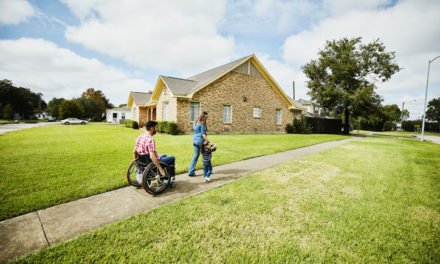
President Trump’s Executive Order to ban anti-racism training is an attempt to disavow that systemic racism is still a major issue in this country. It is an attempt to maintain the status quo and appeal to his conservative base who are threatened by diversity, equity and inclusion (DEI).
The President's Executive Order to ban anti-racism training is an attempt to disavow that systemic racism is still a major issue in this country — to maintain the status quo and appeal to his conservative base who are threatened by… Click To TweetIn examining the order drafted for government contractors, many untruths and perspectives taken out of context become evident.
First it is important to understand what “critical race theory” — the target of the ban — is and is not.
Critical race theory is a framework based on thought leadership and scholarship advanced primarily by scholars of color (historians, legal experts) to examine the fundamental role of race in the formation of American law. Critical race theory challenges the ways in which race and racial power are constructed in American legal structure and society as a whole. It allows us to understand the system of racism and its impact in the workplace and beyond. Many conservatives see critical race theory as a threat because it not only exposes the deep roots of racism, but challenges widely held ideals that suggest the path to achieving “equality” is one that forgets the past and ignores differences.
“Critical race theory aims to reexamine the terms by which race and racism have been negotiated in American consciousness, and to recover and revitalize the radical tradition of race consciousness among African Americans and other peoples of color — a tradition that was discarded when integration, assimilation and color-blindness became the official norms of racial enlightenment.” (From Critical Race Theory: The Key Writings that Informed the Movement.)
Critical race theory supports our understanding of race, racism and power. It rejects notions of colorblindness and meritocracy because socio-economic outcomes are not colorblind, nor are they universally based on merit. Critical race theory is not some “demonizing” concept to destroy democracy. To the contrary, it examines why we have not lived up to this country’s core values… “We hold these truths to be self-evident, that all men are created equal.” It delves deep into the intentionality of racism, offers language for understanding the intersecting nature of systems of oppressions and helps us understand how power influences concepts that are referenced widely in this work (e.g culture, bias).
Countering the Claims in the Executive Order
From EO: [Antiracism training] is contrary to the fundamental premises underpinning our Republic: that all individuals are created equal and should be allowed an equal opportunity under the law to pursue happiness and prosper based on individual merit.
Response: We agree that all individuals should be allowed an equal opportunity under the law. However, outcomes for Black, Indigenous, People of Color (BIPOC) make it abundantly clear that there are still, after 400 years, gross inequities. Meritocracy is aspirational, and certainly the goal of DEI work. Our quest to uncover inequities and develop and implement strategies that change systems will hopefully bring us closer to this vision.
From EO: Training employees to create an inclusive workplace is appropriate and beneficial.
Response: The objective of all of our training is just that–to create an inclusive workplace where all employees can succeed. Where we have evidence that we are not living up to that for any individual or group, we take appropriate action, including training geared toward understanding systems and practices that perpetuate racism and how we can act within our spheres of influence to foster inclusion.
From EO: Training like that discussed above perpetuates racial stereotypes and division and can use subtle coercive pressure to ensure conformity of viewpoint.
Response: By definition, “stereotypes” are viewpoints based on limited experience or information about a group of people. Our training encourages the opposite. DEI work is about empowering individuals with more information, research, and knowledge of cultural patterns to disrupt widely held and limiting perspectives that can cause discrimination or prejudice. It breaks down racial stereotypes and expands worldviews and viewpoints that create inclusion. Our training is aimed at uniting through understanding our similarities and differences—not dividing.
From EO: Research also suggests that blame-focused diversity training reinforces biases and decreases opportunities for minorities.
Response: Our training focuses on collective accountability for equity, not blame. While one may not individually be to blame for racism, we all are part of a country that espouses equality, liberty and justice for all, and we therefore all play a role in actualizing these principles.
From EO: The participation of contractors’ employees in training that promotes race or sex stereotyping or scapegoating similarly undermines efficiency in Federal contracting. Such requirements promote divisiveness in the workplace and distract from the pursuit of excellence and collaborative achievements in public administration.
Response: Our training rejects race and sex stereotyping and scapegoating while recognizing that societal outcomes for groups purportedly protected by federal laws have not been equal. There is a plethora of data from education to income to workforce outcomes that prove there are persistent, widespread inequities based on race and sex. We have not been colorblind or gender–blind based on these outcomes. We will know that we have reached equity when one’s identity no longer predicts outcomes. Our trainings supplement larger organizational goals to foster an inclusive, equitable workplace.
From EO: (a) Divisive concepts” means the concepts that
(1) one race or sex is inherently superior to another race or sex;
(2) the United States is fundamentally racist or sexist;
(3) an individual, by virtue of his or her race or sex, is inherently racist, sexist, or oppressive, whether consciously or unconsciously;
(4) an individual should be discriminated against or receive adverse treatment solely or partly because of his or her race or sex;
(5) members of one race or sex cannot and should not attempt to treat others without respect to race or sex;
(6) an individual’s moral character is necessarily determined by his or her race or sex;
(7) an individual, by virtue of his or her race or sex, bears responsibility for actions committed in the past by other members of the same race or sex;
(8) any individual should feel discomfort, guilt, anguish, or any other form of psychological distress on account of his or her race or sex; or
(9) meritocracy or traits such as a hard work ethic are racist or sexist, or were created by a particular race to oppress another race. The term “divisive concepts” also includes any other form of race or sex stereotyping or any other form of race or sex scapegoating.
Response:
(1) We do not teach that any race or sex is inherently superior.
(2) We recognize that the United States has engaged in racist practices from our founding, which continue to impact outcomes we see today.
(3) We do not teach that an individual by virtue of their race or sex is inherently oppressive. We do teach that we live in a racialized world where there are disparate outcomes based on race.
(4) We agree.
(5) We agree.
(6) We agree.
(7) We bear collective responsibility for creating an equitable society.
(8) We agree. However, historically marginalized groups have felt discomfort, guilt and anguish based on race for over 400 years. Our training is designed to address this and not allow this history to repeat itself. Relative to dominant groups (whites) who may feel such emotions, this is not our intent, and we support them being with and reflecting on those feelings.
(9) We agree that at face value meritocracy and hard work are virtues. We teach how these concepts have been interpreted differently based on race and sex.
From EO: (b) “Race or sex stereotyping” means ascribing character traits, values, moral and ethical codes, privileges, status, or beliefs to a race or sex, or to an individual because of his or her race or sex.
(c) “Race or sex scapegoating” means assigning fault, blame, or bias to a race or sex, or to members of a race or sex because of their race or sex. It similarly encompasses any claim that, consciously or unconsciously, and by virtue of his or her race or sex, members of any race are inherently racist or are inherently inclined to oppress others, or that members of a sex are inherently sexist or inclined to oppress others.
Response: The definition of “inherently” is “in a permanent essential or characteristic way.” Our training is designed so that the inequities in our society do not remain permanent. We do ascribe outcomes to systems of racism and sexism. We will not deny that racism and sexism still exist to the collective detriment of certain groups. Our training aims to highlight these pitfalls and equip individuals and leaders to disrupt these processes and create more inclusive organizations.
The United States has collective blame for racism. We cannot and should not deny that. Click To Tweet
The United States has collective blame for racism. We cannot and should not deny that. Our training does not blame any individual for racism and sexism. We do hold each of our employees accountable for non-discriminatory behavior as outlined in federal law. We also highlight how certain groups have historically had advantage and that a racial hierarchy unfortunately continues to persist. Our training draws upon and offers data and facts that cannot be disputed. Our training is about educating our workforce about the truths of racism and sexism so that we can create an inclusive environment that lives up to our organizational values and the Constitution of the United States.
* These responses are also available for download here.



















